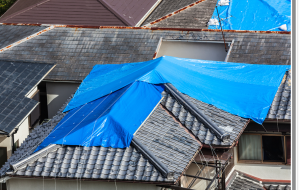 *New Case Law
*New Case Law
A recent appellate court decision, 11640 Woodbridge Condominium Homeowners Association v. Farmers Insurance Exchange (2025) 110 Cal.App.5th 211, marks an important development in HOA law and insurance policy interpretation. The Woodbridge case clarifies how “all risk” (or “open peril”) policies are applied during major construction repair projects. The case stands as a warning that broadly worded exclusions in these policies are not a “free pass” for insurers to deny coverage.
Case Overview
In Woodbridge, the Association sustained more than $3.5 million in water damage when storms struck during an ongoing reroofing project. The Association’s insurance carrier denied coverage, and the Association sued for breach of contract and breach of the implied covenant of good faith and fair dealing. The trial court granted summary judgment in favor of the insurer, but the Court of Appeal reversed. The appellate court found triable issues of fact on both claims and suggested that the insurer’s conduct could rise to the level of bad faith and potentially justify punitive damages.
What This Means for HOA Boards and Managers
- Coverage Can Exist Even During Repair Projects
The Woodbridge decision confirms that coverage can remain intact during in-progress construction, even when structural elements are dismantled. In Woodbridge, the carrier argued that the structure no longer had a “roof” once portions were removed. The Court disagreed, pointing to the policy’s definition of covered property, which expressly included “repairs and alterations.”
Takeaway: HOAs should not assume they are uninsured during construction. Many policies, including the policy in Woodbridge, cover structures under repair. Claims should not be abandoned without a thorough policy review. When in doubt, legal counsel should be consulted early.
- Broad Exclusions Will Be Interpreted Narrowly
The insurance company relied upon broad exclusions in the “all risk” policy to justify its decision to deny coverage, relying specifically on the ‘water damage’ and ‘faulty workmanship’ exclusions to support its denial. The Court emphasized that exclusions are interpreted narrowly against insurers to protect the reasonable expectations of policy holders.
Takeaway: An insurance carrier’s reliance on broad, vaguely worded exclusions will be closely scrutinized and, where ambiguous, resolved in favor of the insured. When faced with a claim denial, Associations should press for a clear, documented rationale and, with the help of legal counsel, push back against unjustified denials.
- Negligence Alone Doesn’t Automatically Bar Coverage
In Woodbridge, the carrier argued that the loss was entirely due to the contractor’s negligence. The Court rejected this, noting the insurer failed to demonstrate that the damage would have been avoided if the contractor had followed industry standards. The carrier did not establish that, but for the negligent work, no rain would have entered the HOA’s property.
Takeaway: In short, negligence, without a showing that it contributed to or caused the damage, may not void coverage. If “faulty workmanship” is cited as a reason for denial, consider whether other contributing causes, such as weather, are present.
- Denial of Coverage Can Trigger Bad Faith and Punitive Damages Exposure
The Court found that Farmer’s denial, based on questionable policy interpretations, exposed it to bad faith and punitive damages liability. Insurers must treat their insured’s interest with equal consideration and investigate claims thoroughly.
Takeaway: If an insurer issues a sweeping denial, fails to investigate, or prioritizes cost savings over coverage obligations, the Association may have remedies beyond mere coverage.
| The Woodbridge decision reinforces that insurance coverage during major repair projects is not as fragile as some insurers suggest. For homeowners association boards and managers, it’s a reminder to read policies closely, push back on overbroad denials, and recognize that even allegations of negligence may not be the end of a claim. Boards and managers are advised to secure proper coverage before construction begins, document protective measures taken during the project, such as tarping and site inspection, and seek legal guidance at the first sign of a dispute. |
 HOA Lawyer Blog
HOA Lawyer Blog

